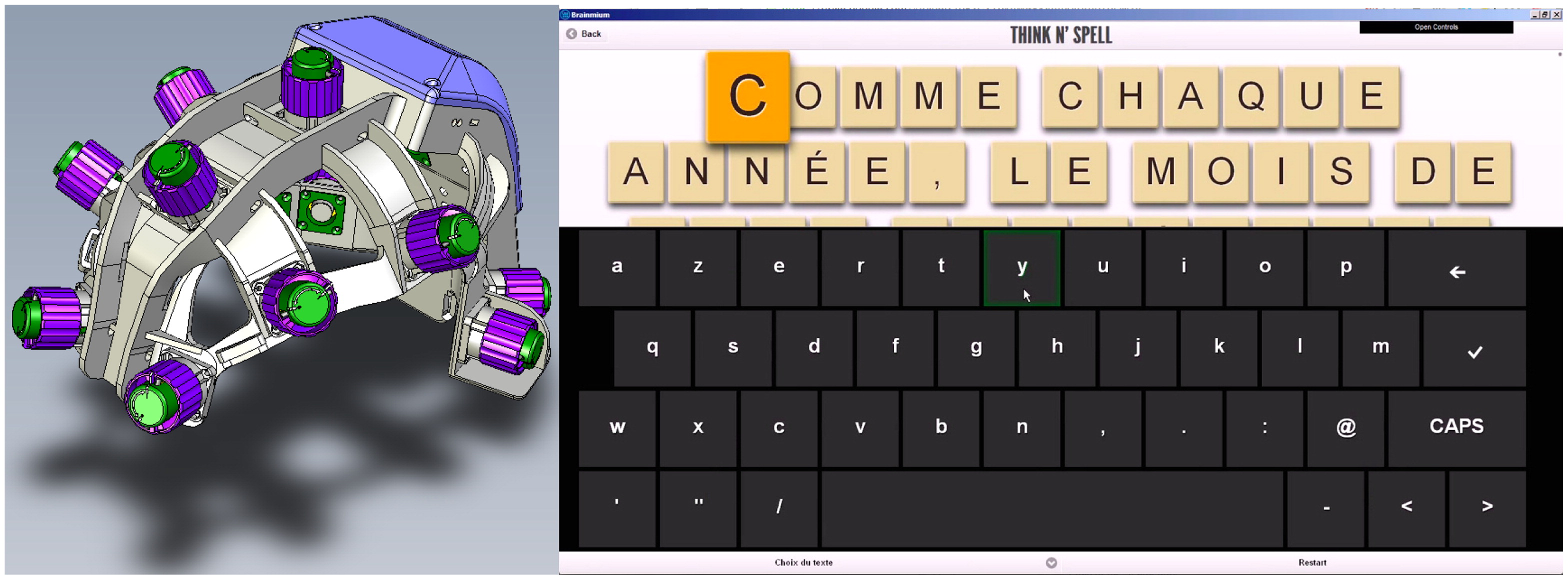
This study presents the outcome of the 5-year-long French national project aiming at the development and evaluation of an effective brain-computer interface (BCI) prototype for the communication of patients with acute motor disabilities. It presents results from two clinical studies: a clinical feasibility study carried out partly in the intensive care unit (ICU) and the clinical evaluation of an innovative BCI prototype. In this second study the BCI performance of patients was compared to that of healthy volunteers and benchmarked against a traditional assistive technology (scanning device). Altogether, 15 of 22 patients could control the BCI system with an accuracy significantly above the chance level. The bit-rate of the traditional assistive technology proved superior, even though an equivalent bit-rate could be achieved using personalized parameters for the BCI. Fatigue was found to be the primary limitation factor, which was particularly true for patients and during the use of the BCI. A classifier based on Riemannian geometry was found to contribute significantly to the accuracy of the BCI system. This study demonstrates that the communication of patients with severe motor impairments can be effectively restored using an adequately designed BCI system. All electrophysiological data are freely available at the Physionet.org platform.